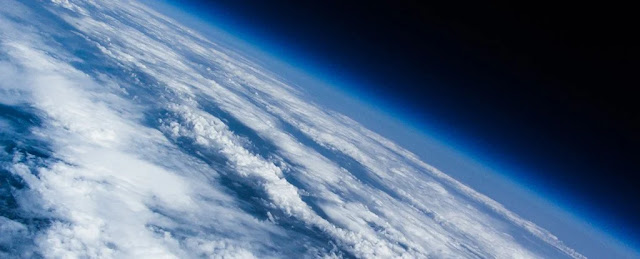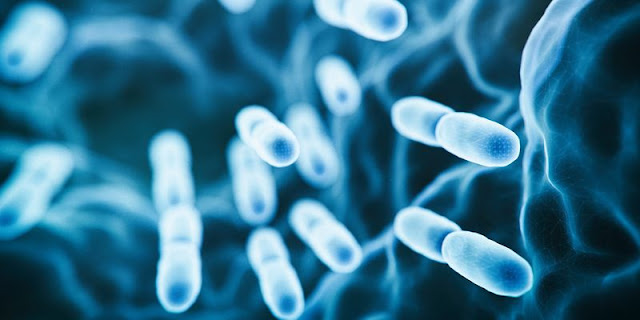Where Did Earth's Oxygen Come From?
Currently, oxygen makes up around 21% of Earth's atmosphere.
But it took a while for the atmosphere on our planet to reach the point where it is now breathable. Methane, hydrogen sulfide, and carbon dioxide, among other gases, were among the initial mixtures to accumulate as a thick layer surrounding our cooling planet 4.6 billion years ago.
These were turbulent times; in addition to the volatile ingredients swirling within the Earth, a regular barrage of frigid rocks from the inner Solar System kept the supply of new material flowing. Larger impacts periodically heated the surface, boiling any moisture that had accumulated and maintaining the hot mucky environment.
But there was also enough of nitrogen in the form of ammonia in that constant stream of minerals falling from the sky.
When did oxygen first enter the atmosphere of Earth?
We still don't know a lot of the specifics. We are unsure of the exact amount of nitrogen that the early mineral rain delivered to our planet, for instance. However, some 4.3 billion years ago, the horrific circumstances on Earth gradually began to improve as the avalanche of space objects subsided.
Water bodies accumulated long enough for a variety of geochemical processes to occur, presumably acting as predecessors to biochemistry, leaving the planet with an atmosphere that was mostly composed of carbon dioxide and nitrogen.
There may have been sporadic "whiffs" of oxygen that occasionally puffed up due to volcanic activity. Although it didn't take long for it to respond, the planet's first billion years or so were largely devoid of oxygen.
The Great Oxidation Event was what?
The energy binding one set of molecules together would have required to be recycled in the earliest efforts at biology on Earth in order to create organic materials. Early on, maybe within a few hundred million years of Earth's formation, someone by coincidence discovered a way to extract energy from sunlight from certain compounds.
Even though it was technically photosynthesis, the additional oxygen was not produced.
It appears that the 'oxygenic' kind of photosynthesis may have started as long ago as 3 billion years ago, if not earlier. Primitive microorganisms received a boost from the biological mechanism known as photosystem II, which enabled them to recombine carbon dioxide and water to create the building components they need as well as a significant amount of energy.
The atmosphere barely changed despite hundreds of millions of years of oxygen burps pouring over the planet's seas. The constant drizzling of meteorites through the heavens, which left behind volatile gases that easily interacted with the tiniest remnants of molecular oxygen, is one reason for this unexpected absence of oxygen.
Whatever the cause of the gradual accumulation, the trickle of oxygen gas eventually amounted to substantial quantities some 2.4 billion years ago, causing what is now known as the Great Oxidation Event.
Was oxygen beneficial to Earth's life?
It's very difficult to pinpoint exactly what effect the unexpected excess of oxygen gas had on the biosphere on Earth.
Oxygen is a somewhat reactive element in theory. We still have specific enzymes to deal with the harm that free oxygen may do to our more fragile organic molecules, like DNA. Therefore, it is simple to envisage that early species would drastically decline in number if they lacked adaptations for dealing with oxygen.
It's absolutely plausible that there was a catastrophic die-off. According to research on the isotopes trapped in rocks that are 2 billion years old, oxygen concentrations decreased as carbon was trapped in the tiny bodies of countless suffering creatures. It's not easy to interpret this old record, though; other research cast doubt on the presumptions and imply that the decline in oxygen could not have been caused by a significant death toll.
The amount of atomic oxygen in our atmosphere ultimately grew to about 21% by 600 million years ago.
It just so happens that the development of living beings' complexity occurred throughout this time in history. It's difficult to quantify how much oxygen contributed, as opposed to the vast amount of nutrients released by the world's glaciers chipping away at the surface.
On the one hand, oxygen is now a necessary tool for releasing a significant amount of energy from hydrocarbons. The ideal mobile fuel for contemporary multicellular organisms!
On the other hand, the link is rather difficult because there is disagreement over the precise order of oxygenation and the emergence of the first complex creatures.
Will the oxygen on Earth ever run out?
It appears like our world will always have a very good supply of oxygen in its atmosphere as long as the Sun is shining, plants are growing, and photosynthesis is running. However, such equilibrium is not enduring.
Solar radiation will become powerful enough to vaporize carbon dioxide in around a billion years. Without the gas, photosynthesis would halt and oxygen levels will drop to levels not seen since the very first moments of the universe, billions of years ago.




Comments
Post a Comment